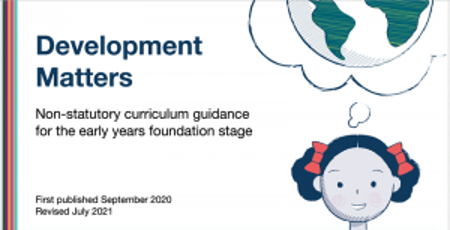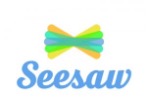At Kenn C of E Primary School our reception class follows the Early Years Foundation Stage (EYFS) framework. This curriculum is based upon four themes and principles;
- Unique Child – Every child is a unique child who is constantly learning and can be resilient, capable, confident and self assured.
- Positive Relationships – Children learn to be strong and independent through positive relationships.
- Enabling Environments – Children learn and develop well in enabling environments, in which their experiences respond to their individual needs and there is a strong partnership between practitioners and parents and carers.
- Learning and Development – Children develop and learn in different ways. The framework covers the education and care of all children in early years provision, including children with special educational needs and disabilities.
The Curriculum
There are 3 prime areas and 4 specific areas of learning in the Foundation Stage framework curriculum – Development Matters

Prime Areas
- Personal, Social and Emotional Development
- Communication and Language
- Physical Development
Specific Areas
- Literacy
- Mathematics
- Understanding of the World
- Expressive Arts and Design
In the Foundation stage the children continue to build on their home and nursery experiences and learning. There continues to be a strong emphasis on developing children’s skills in the 3 Prime Areas. As these areas of learning become more fully embedded there is a further focus on the Specific Areas of Learning, including reading, writing and maths.
The classroom and outside areas are excellently equipped with both age and developmentally appropriate resources to meet the individual children’s needs. We strive to ensure that all our children receive their entitlement to a free flow enabling environment that supports both indoors and outdoor learning through both adult led and child initiated activities.
Activities and experiences for children are based on the seven areas of learning. Planning is based on children’s interests. Topic webs are designed to ensure that all areas of learning are provided for through exciting and stimulating experiences and opportunities. Half termly curriculum letters are sent home and published on our website and these give you an insight as to what you may do to support your child and facilitate learning at home.
The importance of play. Each area of learning and development is implemented through planned, purposeful play and through a mix of adult-led and child-initiated activity.
Play is essential for children’s development, building their confidence as they learn to explore, to think about problems, and relate to others. Children learn by leading their own play, and by taking part in play which is guided by adults.
When planning children’s activities, we reflect on the different ways that children learn. Three characteristics of effective teaching and learning are:
- playing and exploring – children investigate and experience things, and ‘have a go.’
2. active learning – children concentrate and keep on trying if they encounter difficulties, and enjoy achievements.
3. creating and thinking critically – children have and develop their own ideas, make links between ideas, and develop strategies for doing things.
What sort of things will children learn during the Foundation Stage?
In the Prime Areas children will learn to:-
- Share, take turns and develop respect for each other.
- Make friends and become confident independent learners.
- Behave appropriately when playing with others.
- Listen to others and understand spoken language.
- Learn new words rapidly and use them in conversations.
- Join in conversations with adults and children.
- Develop control of their bodies using both large scale movements such as running and jumping, and small scale movements such as holding pencils and using scissors.
In the Specific Areas children will learn to:-
- Enjoy sharing books and stories with adults and friends.
- Read words and simple sentences (Reception children).
- Draw, make marks, write letters and words.
- Count accurately groups of objects and recognise numerals.
- Add, subtract and problem solve during practical activities.
- Use everyday language to talk about size, weight, capacity, distance, time and money.
- Look closely at how things work, why things happen, living things and the natural world.
- Be imaginative, sing songs, dance and create fantastic models, drawings and paintings.
Your Child’s Learning Journey

Each child has an individual learning journey for their time in the foundation stage. Reception children have a combination of an online learning journal through SeeSaw as well as a variety of learning journals.
Seesaw is a great way for the school to share the learning of the children with parents. We encourage parents and carers to upload their own photos onto the platform, as we value the strong partnership between school and home and understand how this is vital for our pupils to thrive and develop.



 Follow
Follow